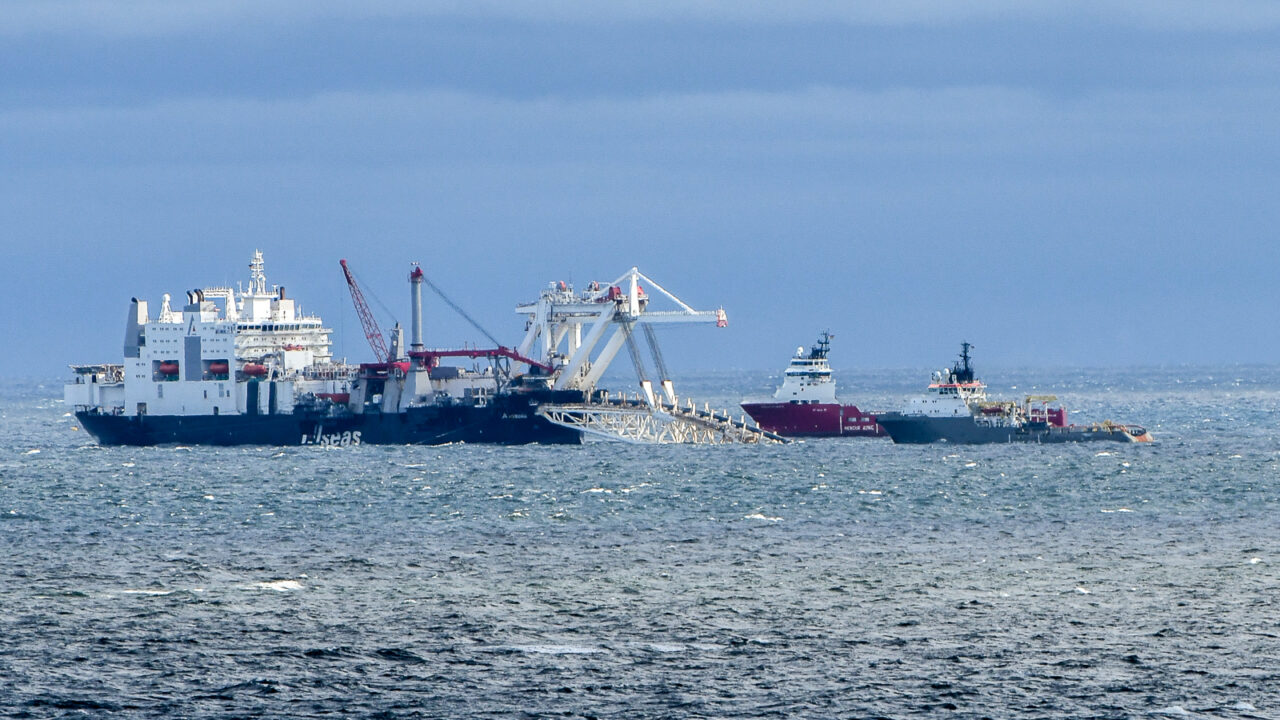Life punishes those who come too late
The EU should immediately impose a temporary embargo on Russian energy imports. If the union waits any longer, it will be too late – and the political costs will be huge
In a speech to the Bundestag on 17 March, Ukrainian President Volodymyr Zelensky called on Germans to tear down the wall that separates Ukraine, beset by Russian aggression, from the free world. The allusion to then US president Ronald Reagan’s famous speech in Berlin in 1987 was well chosen. Like Mikhail Gorbachev, whose American adversary urged him to tear down the Berlin wall, today’s Germany needs courage and determination to face up to challenges of historic proportions.
Zelensky’s speech was met with an ovation – and then a deafening silence. To simply return to normal parliamentary procedure seemed inappropriate. But history will not judge German politicians on the words they could have uttered in a debate that never was. Instead, their legacy will be the steps they take in the coming weeks to limit Russian President Vladimir Putin’s all-out assault on Ukraine.
And this was possibly Zelensky’s most important message: with the West’s help, Ukraine could repel the Russian invasion. However, success for Putin would spell disaster for Germany and Europe – since EU and NATO member states would be next.
Therefore, as Ukrainians fight on the battlefield, Germany needs to do more to incapacitate Russia’s economy. This is the only way to exploit the opportunity that fierce Ukrainian resistance and stringent Western sanctions have created. Russia’s economy is stumbling. And reports from Ukraine state that morale is low among Russian troops. But the tide can still turn in Russia’s favour. Ukrainian resistance could be broken if Putin drafts more soldiers on 1 April and Russia mitigates the impact of the sanctions (with the help of China, for example). Indeed, Western analysts and military experts argue that the coming weeks will be decisive for the outcome of this struggle. Zelensky was well aware of this when he gave his speech.
Further action from Germany does not mean establishing a no-fly zone or sending a NATO peacekeeping mission to Ukraine (an issue that Polish Deputy Prime Minister Jaroslaw Kaczynski unexpectedly brought up during his recent visit to Kyiv). NATO rightly does not want to engage militarily in Ukraine, nor could it quickly engage in any such operations. But, in view of the constantly changing situation, Germany needs to adjust both its calculations and its strategy. Berlin has little more to offer by way of much-needed arms donations to Ukraine. Therefore, it should focus on an embargo on Russian oil and gas.
It is becoming clear that pausing Russian imports could be the most effective way to stop a weakened Putin in his tracks
Berlin’s discussion of the consequences in Germany of freezing Russian gas and oil imports perhaps seems insensitive in view of the tragedy unfolding in Ukraine. However, it is legitimate and important to consider the costs and benefits of such a momentous decision. At the time of the debate, the scale of Russia’s economic problems and the Russian army’s misfortune were not fully known. It was, therefore, possible to doubt the effectiveness of an oil and gas embargo. Today, the situation is different. And it is becoming clear that pausing Russian imports could be the most effective way to stop a weakened Putin in his tracks and prevent the conflict from spreading.
The argument that Russia cannot use the funds from its gas and oil trade to fund its war machine has been roundly debunked. In fact, the opposite is true: EU sanctions are – intentionally – full of loopholes. However, if the EU brought a full embargo to the table, it would be a bold and unambiguous signal to others. Even China, for example, would have to think carefully about whether rushing to Moscow’s aid was in its interest. There is also a strong possibility that such an embargo would massively influence the course of the war in Ukraine’s favour. Accordingly, there may never be a better time to do it.
The timing of such a move is crucial. Indeed, if Putin is not stopped now, he will continue to massacre Ukrainian citizens until something prevents him from doing so. Putin wants to subjugate and, if necessary, wipe out the Ukrainian nation. He has proved several times that he is serious about this – not least when he bombed hundreds of women and children sheltering in a Mariupol theatre.
Will Germany continue buying Russian oil and gas on a large scale if thousands of bombs are still falling on Ukrainian cities in three or four months’ time? Sooner or later, it will become morally and politically unjustifiable for Germany to do so. Gorbachev’s famous words from 1989 should serve as a warning: “life punishes those who come too late”.
But an embargo should not be confused with an immediate and complete halt to Russian energy imports. It would be a means to an end and not an end in itself. For example, the EU could declare that it will not buy energy from Russia until it withdraws from Ukraine. If this brought about a lasting ceasefire, it would be a significant step. Further sanctions would undoubtedly be necessary to ensure that Russia paid for the war and returned all Ukrainian territories. But, first, Putin’s assault must be stopped. And the time to act is now.
An earlier version of this commentary was published in Der Spiegel on 20 March.
The European Council on Foreign Relations does not take collective positions. ECFR publications only represent the views of their individual authors.



